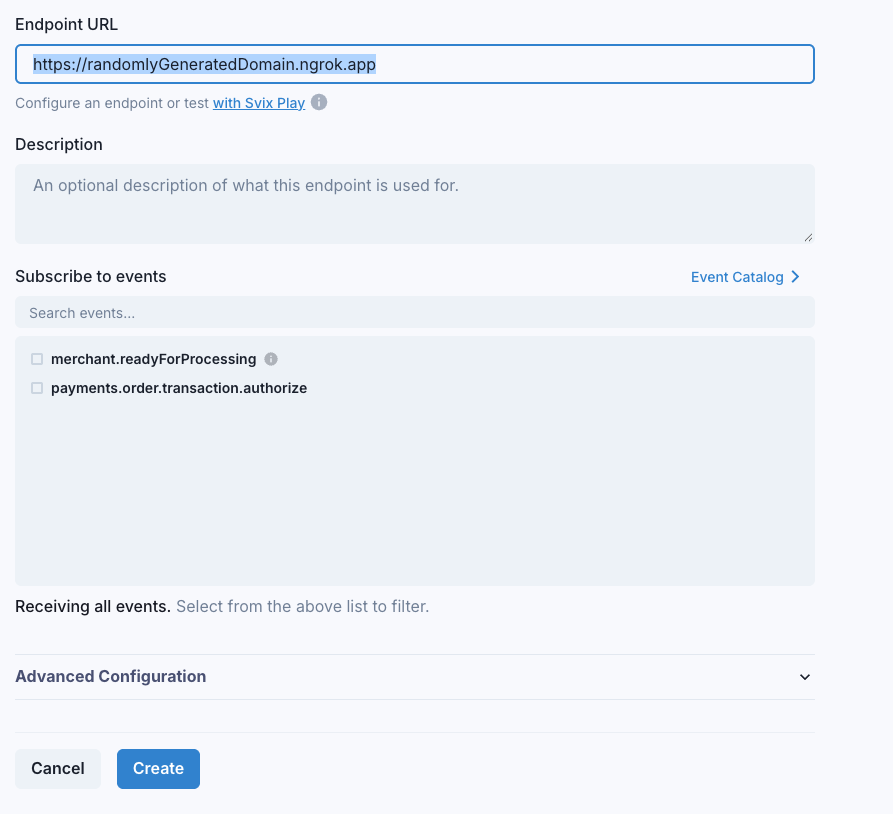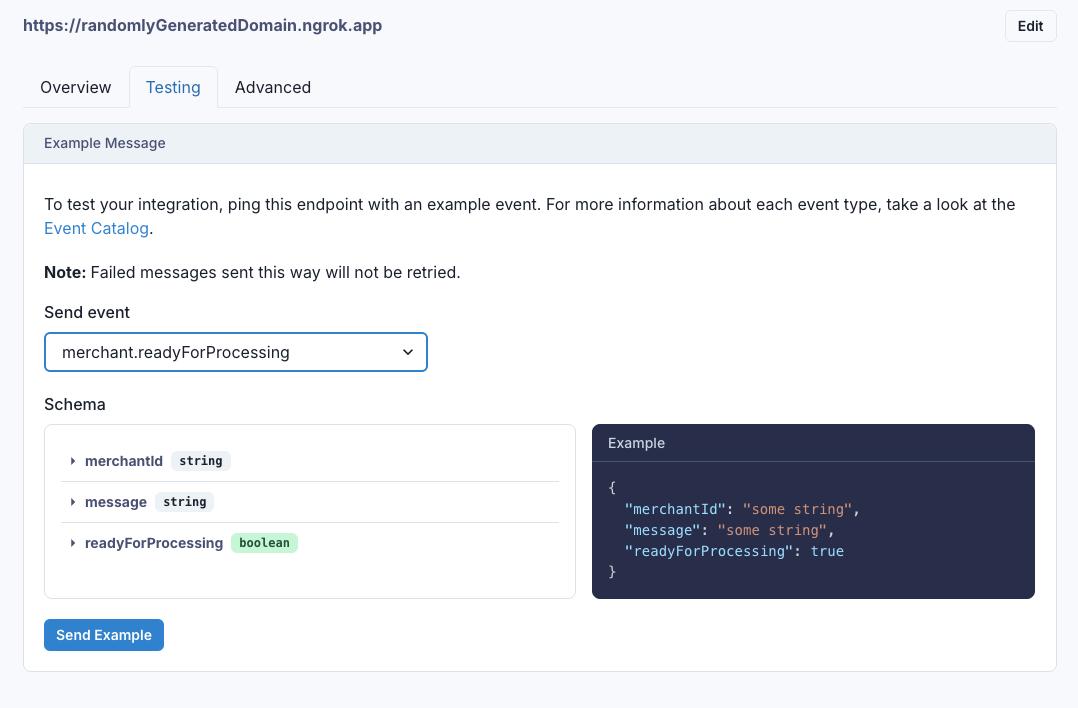Local Testing with Ngrok
Learn how to test Prahsys webhooks locally using ngrok to create a secure tunnel to your localhost, allowing webhook testing during development
Ngrok is a tool that creates a secure tunnel to your localhost, allowing you to expose a local server to the internet. This is particularly useful for testing webhooks and other integrations that require a publicly accessible URL.
This guide is to help you test your webhooks locally using ngrok.
Create Your Ngrok Account
Go to Ngrok and create an account.
Install Ngrok
Go to Ngrok to Download
Start Ngrok
ngrok http http://localhost:3000Grab your Forwarding Domain
Ngrok will generate a random https domain for you to use. This is the URL you will use to set up your webhook in SVIX.
Note: You can upgrade your ngrok account to generate static URLs.
Session Status online
Account [email protected] (Plan: Pro)
Update update available (version 3.22.1, Ctrl-U to update)
Version 3.19.0
Region United States (us)
Latency 54ms
Web Interface http://127.0.0.1:4040
Forwarding https://randomlyGeneratedDomain.ngrok.app -> http://localhost:8080
Connections ttl opn rt1 rt5 p50 p90
0 0 0.00 0.00 0.00 0.00Create an endpoint with Prahsys Webhooks
Create a new webhook in the Prahsys webhooks dashboard and use that domain as the Endpoint URL to listen for incoming webhook requests.

Prahsys Svix Webhook Management
Test Your Webhook Connection
When pressing Send Example, it will send an example body to your ngrok tunnel which will forward it to your localhost.

Updated 4 months ago
